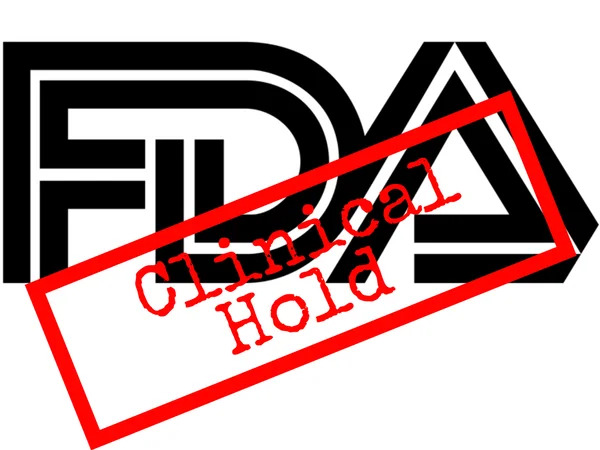Explainer: What is a Clinical Hold?
October 21, 2025A clinical hold is an order by the U.S. Food and Drug Administration (FDA) directing a sponsor of an Investigational New Drug (IND) to delay the initiation of a planned clinical investigation or to suspend an ongoing clinical trial. This mechanism is an important regulatory safeguard that can severely disrupt a sponsor’s plans. It gives the FDA authority to intervene when deficiencies or safety risks are identified before or during human testing.
Grounds for Imposition

For Phase 1 studies, FDA may impose a hold if one or more of these conditions exist:
- Subjects would be exposed to an “unreasonable and significant risk” of injury or illness
- The clinical investigators lack the necessary scientific or medical credentials
- The investigator brochure or other documentation is misleading, erroneous, or materially incomplete
- The IND lacks sufficient information to assess the risks of proposed studies
- The design discriminates by sex without adequate justification, especially when reproductive toxicity is a concern
For Phase 2 or Phase 3 trials, the above still applies. However, additional grounds include protocols that are “clearly deficient” in design to meet stated objectives. For expanded access protocols, holds may hinge on failure to satisfy criteria for expanded access use or noncompliance with regulatory requirements. For trials not designed to be adequate and well-controlled, extra grounds include interference with enrollment in “well-controlled” studies, insufficient drug supplies to conduct all planned studies, prior evidence of lack of effectiveness, or competition from approved or more promising therapies.
Holds are not just about safety signals, but also trial design, scientific justification, completeness of data supporting human trials, consistency of supply, and public interest. It is important to continue to monitor all angles relating to developing a new drug and to communicate with FDA as needed.
Procedures & Timing
When FDA identifies a deficiency that may merit a hold without an immediate and severe risk, FDA typically attempts to engage the sponsor to resolve the issue before issuing a formal hold. FDA will then communicate if it decides to issue a hold.
The sponsor must submit a response, in writing, addressing all cited deficiencies. FDA will review and issue a response with the clinical trial resuming only if FDA lifts the hold. If all studies under an IND remain on hold for a year or more, the IND may be designated “inactive status.” If a sponsor disagrees with a hold, an appeal of the decision, including the involvement of the ombudsman, may be required.
Implications, Risks, and Strategic Considerations
A clinical hold is deeply disruptive, resulting in enrollment delays, increased costs, loss of momentum, and potentially reputational risk for the sponsor. From a safety perspective, holds are essential checks protecting subjects. From a strategic vantage, sponsors must anticipate the risk by ensuring thorough preclinical safety data, robust pharmacology/toxicology packages, clear and complete investigator materials, qualified sites and investigators, and sound protocol design.
"A clinical hold doesn’t just pause a study. It can derail years of investment if the root causes aren’t anticipated early. Clear communication with FDA and rigorous preclinical preparation are the best defenses against a preventable delay.”
Nathan Downing, Managing Attorney, Gardner Law
As some holds are issued for reasons beyond safety considerations, sponsors should utilize early and ongoing interactions with FDA. Proper communication is critical to flag potential issues before formal review. The disruption from a hold is so great that companies should spend appropriate resources early in product development to mitigate the risk as much as possible.
How Gardner Law Can Help
If you are experiencing a clinical hold or have questions about strategies to avoid one, contact Gardner Law. Our team of regulatory, compliance, and privacy experts can identify issues in your product development and help guard against FDA disruptions.